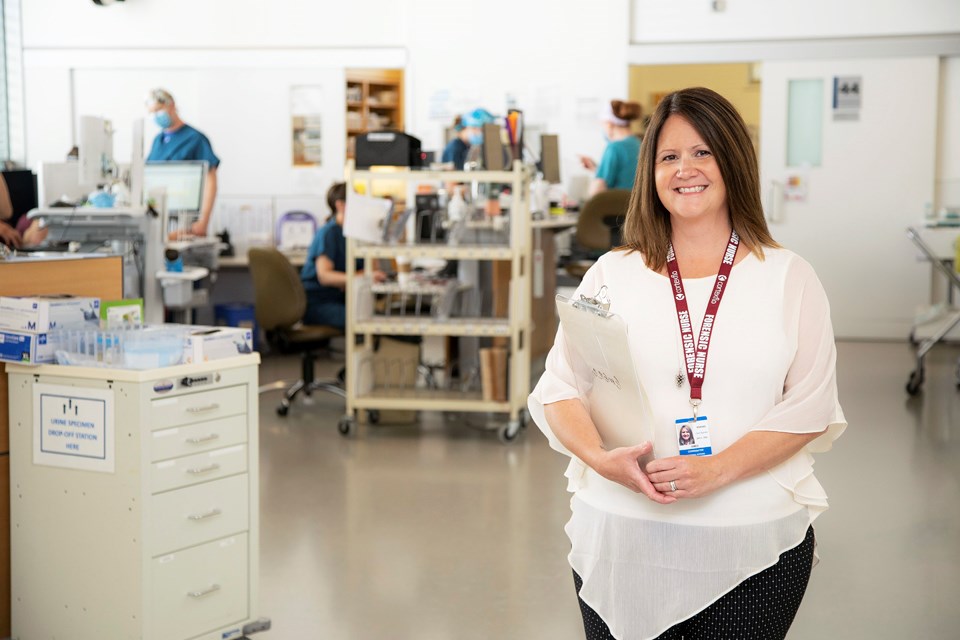When nurses who’ve taken BCIT’s forensic nurse examiner course testify as witnesses in sexual assault and child abuse trials, they can now say they are certified at the highest international level.
Last month, the Burnaby technical institute’s program earned accreditation from the International Association of Forensic Nurses.
That makes BCIT the first IAFN-approved provider of sexual assault nurse examiners in Canada.
The accreditation won’t change much about the way the forensic nurses are trained at BCIT, according to Aimee Falkenberg, the program’s lead instructor since 2011, but it will add credibility in the courtroom.
“We are asked on the stand why are we an expert in the field that we’re in, where did our training come from, so it’s very important that we can say that we’ve taken the BCIT forensic nurse examiner training course. It’s an accredited course. It holds the highest standard for education for any forensic nurse examiner,” Falkenberg said. “That holds huge weight in the courtroom.”
In health authorities, like Fraser Health, that have forensic nursing programs, forensic nurses are a bridge between medicine and the legal system, specializing in sexual assault examinations, child abuse and domestic violence.
Before the early 1990s, that work used to be done by doctors, but nurses have mostly taken over the role except in more remote communities, according to Falkenberg.
While doctors in an emergency room might be called away to attend to other cases, forensic nurses are there for their patients throughout the process, she said.
Depending on the choices a patient makes, a forensic exam can last between four to eight hours, according to Falkenberg.
“It’s very long and it starts off with taking the patient’s health history and then getting the history of the event … and then taking them into the room,” Falkenberg said. “We obtain their clothing. We flare them with an alternate light source. We document every bruise from the top of their head down to their toes, and then we collect forensic samples, process them, and then we refer them off for follow-up support as necessary and give them all their medication and lab work, and we feed them, and we like to give them warm blankets. It’s a holistic examination. We don’t just walk in there.”
The patients’ choices guide the process, and trust is key, Falkenberg said.
Each patient is given three options: medical care only with no collection of forensic samples or reporting to police; medical care plus the collection of samples but no reporting to police; or medical care, the collection of samples and reporting to police.
If patients opt to have samples collected without reporting to police, the samples are kept in a locked nurse forensic examiner freezer for up to 365 days.
For nurses, the work can be “highly traumatic,” and many drop out, according to Falkenberg, but it is also “very rewarding” to help a patient through what is often the worst day of their lives, she said.
BCIT’s forensic nursing course is a six-day, 45-hour online course, but only registered nurses are allowed in, and they first have to complete the institute’s foundations of forensic health science course as a prerequisite.
And before being allowed to practice as a forensic nurse in the health authority, they have to work three “buddy cases” with an experience forensic nurse and pass a mock examination.
Besides preparing nurses to provide care for their patients, the training is also scrutinized when forensic nurses testify in court, and that’s where the recent accreditation will come in handy, according to Falkenberg.
“It just means that they’ve taken the highest level of education that they can in order to become a forensic nurse,” she said.
Despite nurses now doing most of this work in Canada, Falkenberg said it’s been a struggle to gain recognition.
“Because we’re so young in Canada, it’s been a fight for many many years for people to recognize our expertise in this field,” she said.
In Fraser Health, forensic nursing services are available 24 hours a day, seven days a week at Surrey Memorial Hospital and the Abbotsford Regional Hospital and Cancer Centre.
For more information, visit tinyurl.com/FHforensicnursing.
Follow Cornelia Naylor on Twitter @CorNaylor
Email [email protected]



